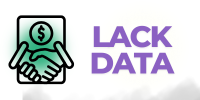Using Telegram data for research has become increasingly popular due to the platform’s wide adoption and the richness of information it provides. Telegram, a cloud-based messaging app, offers researchers unique access to real-time communication data, group interactions, and public channels that can shed light on social behaviors, information dissemination, and public opinion. However, the use of this data also raises significant ethical concerns that must be carefully addressed to protect privacy, maintain trust, and ensure responsible scholarship. This article explores the ethical considerations involved in using Telegram data for research, outlining best practices and key challenges.
Privacy and Consent in Telegram Data Collection
Privacy is perhaps the most critical telegram data ethical issue when collecting Telegram data. Unlike traditional survey methods where participants provide explicit consent, data from Telegram users may be collected passively or through observation of public channels and groups. Researchers must consider whether the data subjects are aware that their messages could be used for research and whether they have consented to such use. Even if the data is publicly accessible, ethical research standards often require transparency and, where possible, informed consent to avoid breaching individuals’ expectations of privacy. Protecting user anonymity and avoiding the identification of individuals are essential safeguards.
Anonymization and Data Security Measures
>>>>>>>To address privacy concerns, anonymization how to use phone outreach in b2b funnels techniques should be applied rigorously to Telegram datasets. This involves removing or obfuscating any personally identifiable information (PII) such as usernames, phone numbers, or unique message metadata that could trace back to individual users. Beyond anonymization, researchers have a responsibility to ensure data security during storage and processing. for research ethical Secure encryption, restricted access, and adherence to data protection regulations like GDPR can minimize the risk of data breaches. Ethical research mandates that data handlers not only anonymize data but also implement comprehensive security measures.
Assessing the Public versus Private Nature of Telegram Data
A key ethical dilemma is determining whether Telegram data is public or private. Telegram offers both private chats and public channels/groups. Data from public thailand lists channels may be easier to justify for research purposes, but even then, researchers must consider the context in which the information was shared. Users may not fully understand that messages posted in “public” channels are accessible to wide audiences and may be subject to research scrutiny. Private or semi-private groups present a higher ethical bar, often requiring explicit consent. Careful evaluation of the platform’s design and user expectations is necessary to respect privacy boundaries.
Potential Harm and Impact on Communities
Ethical research with Telegram data must also consider potential harms to users and communities. This includes reputational damage, stigmatization, or psychological distress that could result from data misuse or misinterpretation. For example, research on politically sensitive groups or vulnerable populations requires heightened ethical vigilance to avoid exacerbating risks. Researchers should weigh the benefits of the knowledge gained against possible negative consequences and strive to minimize harm through sensitive data handling, careful analysis, and respectful reporting.
Transparency and Accountability in Research Practices
Transparency in research methodology is essential to uphold ethical standards when using Telegram data. Researchers should clearly document how data was collected, anonymized. And analyzed, including any ethical approvals obtained from institutional review boards (IRBs). Openness about the limitations and ethical. Challenges encountered encourages accountability and allows peers to assess. The for research ethical validity and integrity of the research. Engaging with the communities being studied, when possible, can also enhance ethical rigor and foster trust.
Future Directions for Ethical Use of Telegram Data
As digital communication continues to evolve, the ethical frameworks guiding the use of Telegram data must also adapt. Future research should promote the development of guidelines. Tailored specifically to messaging platforms like Telegram, integrating technical safeguards, user-centered consent models, and ongoing ethical education for researchers. Collaboration between ethicists, technologists, and user communities can help build more robust protections. Ultimately, the goal is to harness the valuable insights Telegram data offers while respecting human dignity and privacy.
